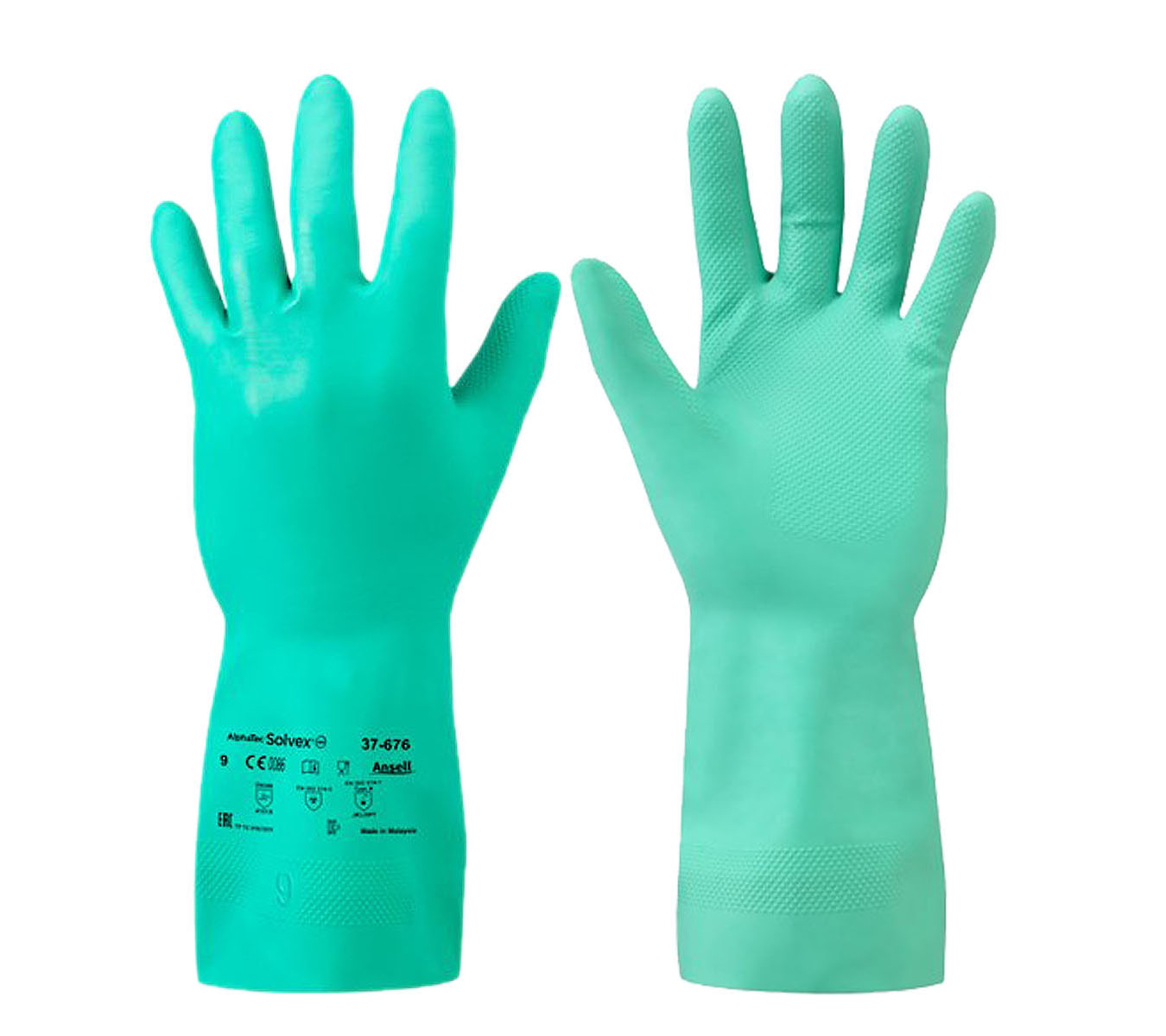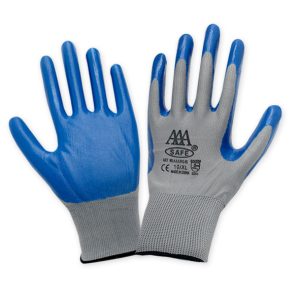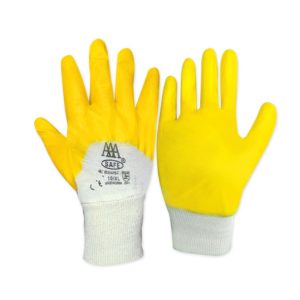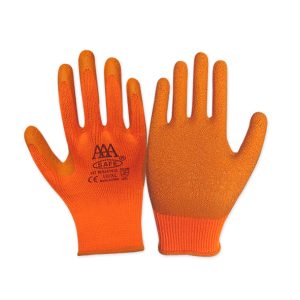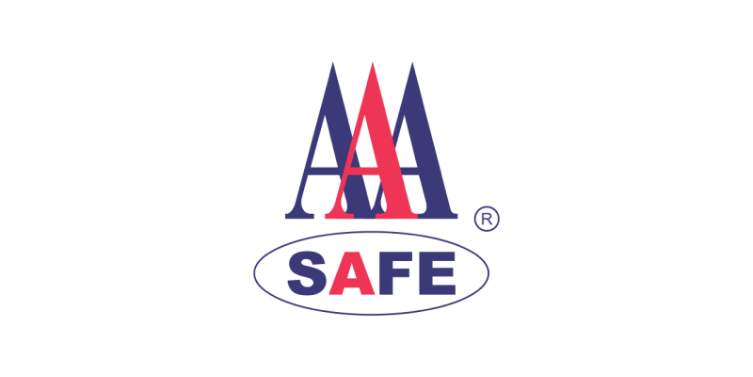Description
Breakdown of Comfortable Chemical-Resistant Gloves
These gloves combine features for user comfort, grip, durability, and chemical protection. Here’s a breakdown:
- Material and Protection:
- Tough Nitrile Compound: Nitrile offers good resistance to a range of chemicals, oils, and greases. However, the specific chemicals and the level of resistance will depend on the exact nitrile compound used.
- Durability:
- Tough Nitrile Compound: This generally translates to good durability for tasks involving exposure to chemicals and some abrasion.
- Comfort and Dexterity:
- Cotton Flocking: The cotton lining absorbs moisture, potentially improving comfort during extended wear. However, this lining might not be ideal for tasks requiring frequent cleaning or involving water-based chemicals.
- Note: Cotton flocking can sometimes reduce finger movement slightly compared to unlined gloves.
- Grip:
- Reversed Lozenge Finish: This textured surface pattern can enhance grip, especially when handling wet or oily objects.
- Possible Applications:
These gloves could be suitable for various tasks requiring:
-
- Chemical Handling:
- Look for additional information about the specific chemicals the nitrile compound resists. Consider consulting the manufacturer’s chemical resistance chart.
- Durability: Tasks involving moderate to heavy-duty chemical handling or potential contact with abrasive materials (e.g., cleaning with solvents, parts washing).
- Chemical Handling:

